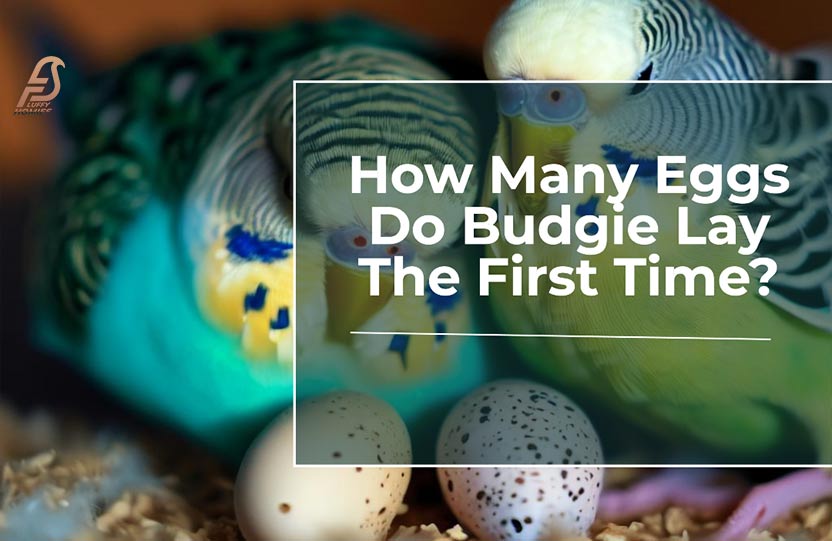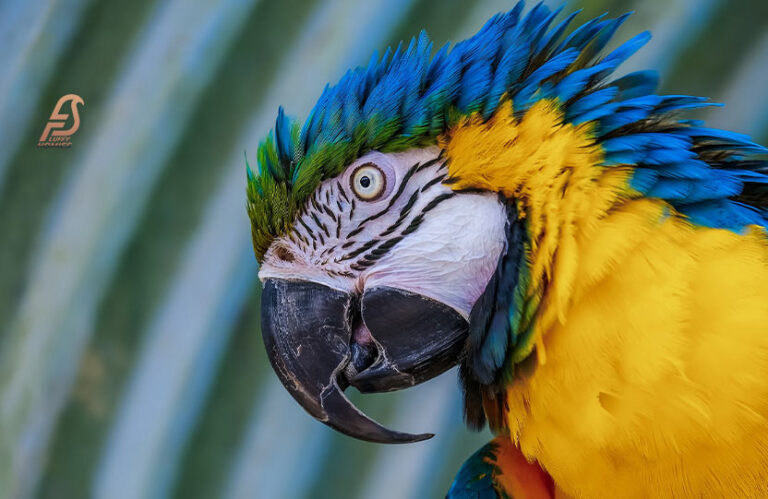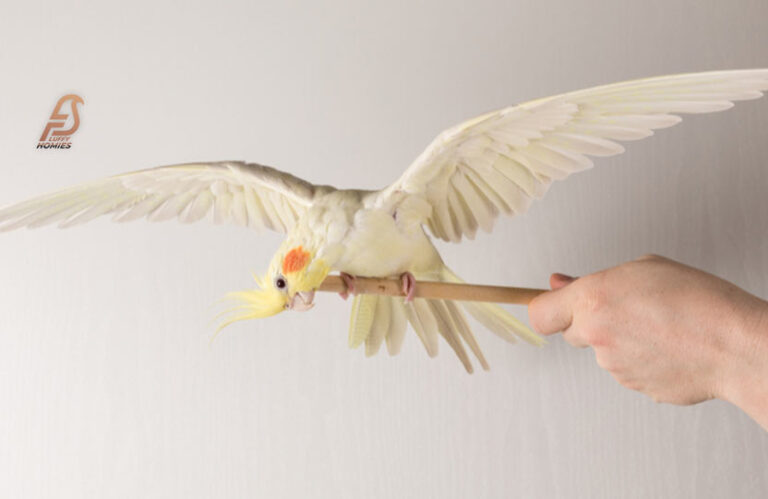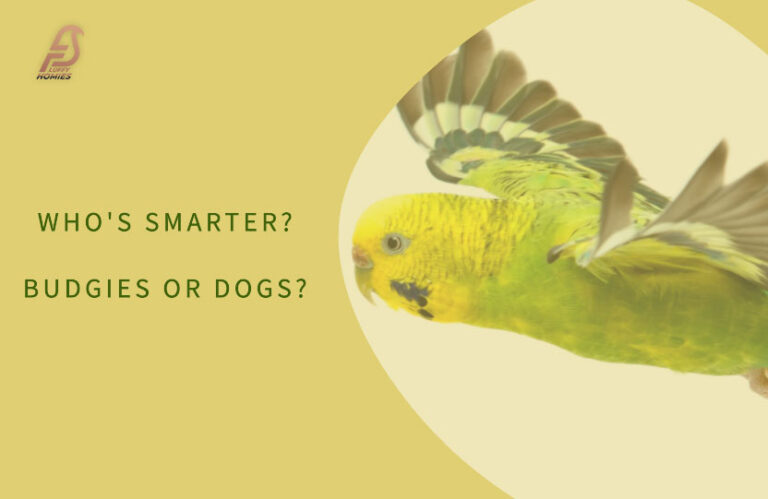How Many Eggs Do Budgie Lay the First Time? (Beginning 2023)
Budgies, also known as budgerigars or parakeets, are small and colorful birds that are popular as pets around the world.
One common question among budgie owners is how many eggs their birds will lay, particularly during their first breeding attempt.
In this article, we will explore the life cycle of budgies, and their breeding age, and discuss how many eggs they lay during their initial nesting period.
Understanding Budgie Breeding
Once they reach maturity, typically between 6 and 12 months of age, budgies exhibit remarkable breeding behaviors. Understanding these behaviors can provide valuable insights into their reproductive cycle.
During the breeding season, which usually occurs during spring and summer, budgies undergo physiological and behavioral changes.
These changes are triggered by environmental cues, primarily the lengthening of daylight hours. As the days become longer, budgies’ hormonal levels adjust, leading to increased breeding activities.
Vocalization
One notable behavior during the breeding season is increased vocalization. Male budgies become more vocal, often singing and chirping loudly to attract a mate.
They may also engage in courtship displays to demonstrate their fitness and suitability as a partner.
These displays can include head-bobbing, fluffing up their feathers, and performing elaborate dances in front of the female budgies.
Nest-Building
Nest-building is another significant behavior observed during budgie breeding. Male budgies take on the role of architects and gather nesting materials to construct a suitable nest.
They meticulously arrange twigs, grass, and leaves to create a secure and comfortable nesting site. Female budgies closely inspect the nest and provide their approval before accepting the male as their mate.
Egg Production
Once the pair forms a bond and successfully mates, the female budgie’s reproductive system prepares for egg production.
The female’s body will begin developing eggs within her ovary. It is during this time that budgies typically lay their first clutch of eggs.
How Many Eggs Do Budgie Lay the First Time?
When budgie pairs successfully mate for the first time, they usually produce a clutch of eggs. The number of eggs in the first clutch can vary, but there is a typical range that budgie owners can expect.
On average, budgies lay between 4 and 6 eggs in their first clutch. This means that most budgie pairs will lay around 4 to 6 eggs during their initial breeding attempt.
However, it’s important to note that individual budgies may lay fewer or more eggs than this average range.
What Are the Factors That Affecting Budgie Egg Production?
Before knowing about this knowledge people wonder that how many times budgies mate before laying eggs. The number of eggs laid by budgies can be influenced by several factors.
Understanding these factors can help budgie owners create an environment that maximizes egg production and breeding success.
Let’s explore the key factors that can affect budgie egg production:
Age and Health
The age and overall health of budgies can impact their egg production. Young budgies, especially those breeding for the first time, may lay fewer eggs compared to older, more experienced birds.
As budgies mature and gain breeding experience, they tend to produce larger clutches. Additionally, budgies in good health are more likely to lay a higher number of eggs.
Providing a nutritious diet, regular health check-ups, and a stress-free environment contribute to optimal health and increased egg production.
Genetics
Genetic factors can also play a role in determining the number of eggs laid by budgies.
Some budgies may have a genetic predisposition to lay larger clutches, while others may naturally lay smaller ones. These genetic variations can lead to differences in clutch size among individual budgies.
Nesting Conditions
The nesting conditions provided for budgies can influence their egg production. A comfortable and secure nesting environment is essential for encouraging budgies to lay eggs.
This includes providing a suitable nesting box with appropriate dimensions, soft nesting material such as shredded paper or wood shavings, and ensuring privacy during the breeding process. Budgies prefer a calm and secluded setting for successful egg-laying.
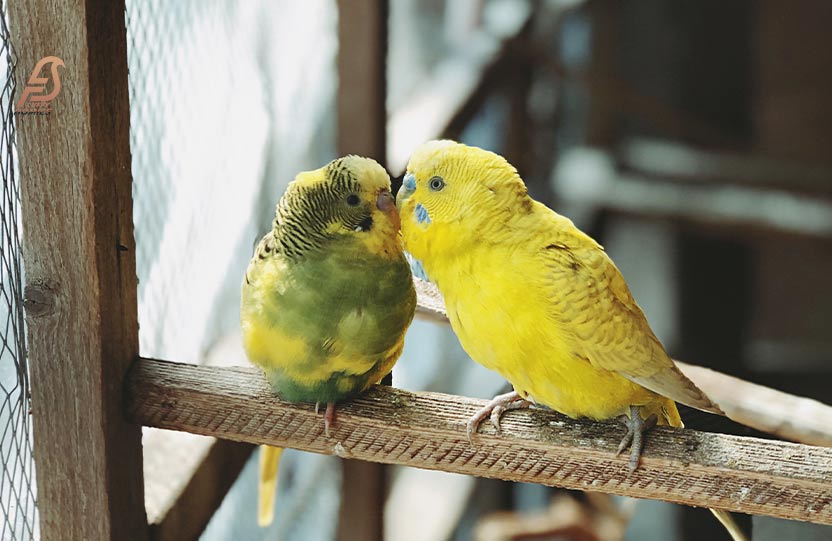
Diet and Nutrition
A balanced and nutritious diet plays a significant role in budgie egg production. Proper nutrition supports optimal egg production and overall breeding success.
Providing a high-quality budgie pellet as the main food source, supplemented with fresh fruits, vegetables, and occasional treats, ensures that budgies receive the necessary nutrients for reproductive health.
Environmental Factors
Environmental factors, such as lighting and temperature, can impact budgie egg production. Budgies are sensitive to changes in daylight hours, and the lengthening days of spring and summer trigger their breeding instincts.
Providing appropriate lighting conditions that mimic their natural environment helps stimulate breeding behavior.
Temperature also plays a crucial role, as extreme heat or cold can negatively affect egg production. Maintaining a moderate and consistent temperature in the breeding area promotes successful egg-laying.
How to Maximize Budgies Egg Production?
If you’re interested in maximizing budgie egg production and creating the best possible conditions for successful breeding, consider the following tips:
Providing a suitable nesting box
Offer a nest box that mimics the natural cavities budgies would choose in the wild. Ensure it is spacious, secure, and filled with appropriate nesting material.
Balanced nutrition and supplements
A healthy diet is crucial for budgie reproduction. Provide a well-rounded diet consisting of fresh fruits, vegetables, high-quality seeds, and pellets. Consider offering calcium supplements to support eggshell formation.
Proper lighting and photoperiod
Budgies require adequate exposure to natural or artificial light to regulate their reproductive cycles.
Maintain a consistent light-dark schedule of 12-14 hours of light and 10-12 hours of darkness to stimulate breeding behavior.
Minimizing stress and disturbances
Create a calm and peaceful environment for budgies during their breeding period. Minimize loud noises, sudden movements, and excessive handling that can stress the birds and disrupt the egg-laying process.
Pairing compatible budgies
Selecting compatible breeding pairs increases the chances of successful reproduction. Observe budgies’ behavior and ensure they display mutual interest and compatibility before introducing them for breeding.
How to Care for Budgie Eggs?
Once budgies lay their eggs, it’s important to provide proper care to ensure the eggs have the best chance of hatching successfully. You can easily care and incubate your bird eggs at home.
Providing a Nest Box
A suitable nest box is essential for budgies to lay their eggs comfortably. It should be appropriately sized, well-ventilated, and filled with suitable nesting material such as shredded paper or untreated wood shavings.
Monitoring and Incubation
After the eggs are laid, it’s essential to monitor them regularly to ensure they remain intact and viable. Budgie eggs typically take about 18 to 21 days to hatch, but this can vary slightly.
During this time, the parent budgies take turns incubating the eggs, maintaining the ideal temperature and humidity levels.
Hatching and Rearing Chicks
Once the eggs hatch, the parents continue to care for the chicks. It’s important to provide a well-balanced diet that includes soft foods and supplements to support the growing chicks’ nutritional needs.
Additionally, maintaining a clean and hygienic environment is crucial for their well-being.
Why Budgie Eggs Not Hatching?
Sometimes birds eggs not hatch due to specific reasons. Experiencing non-hatching budgie eggs can be a concern for budgie breeders. Several factors can contribute to this issue.
Let’s explore some of the common reasons why budgie eggs may fail to hatch:
Infertility
Infertility is a primary reason for non-hatching budgie eggs. Sometimes, the eggs laid by budgies are not fertilized, meaning they will not develop into chicks.
Infertility can occur due to various factors, such as a lack of compatibility between the breeding pair, health issues in one or both budgies or genetic factors. If the eggs remain unhatched after the typical incubation period, likely, they were not fertilized.
Inadequate Incubation
Proper incubation is crucial for the development of budgie eggs. Budgies typically start actively incubating their eggs once the entire clutch is laid.
Both the male and female budgie take turns incubating the eggs, maintaining an optimal temperature and humidity level.
If the eggs are not consistently incubated or if the incubation conditions are not suitable, they may not hatch.
Poor Egg Development
Eggs that fail to develop properly will not hatch. Factors such as improper nutrition, inadequate calcium levels, or genetic abnormalities can affect the development of the embryos inside the eggs. If the embryos do not develop properly, the eggs will not hatch.
Inexperience or Young Breeders
Inexperienced or young budgies breeding for the first time may not exhibit proficient parenting skills. They may struggle with proper incubation techniques, neglecting or abandoning the eggs.
In such cases, it’s essential to provide guidance and support to the breeding pair to enhance their parenting abilities.
Environmental Factors
Environmental conditions can impact egg viability. Extreme temperatures, high humidity, or excessive disturbances in the breeding area can affect the eggs’ development and prevent them from hatching.
Maintaining a stable and suitable environment is crucial for successful hatching.
Genetic Factors
Genetic abnormalities or deficiencies in either the male or female budgie can contribute to non-hatching eggs. Genetic issues can affect the viability of the embryos or hinder the hatching process.
Conclusion — How Many Eggs Do Budgie Lay the First Time?
Understanding the number of eggs budgies lay during their first breeding cycle is vital for budgie breeders.
By considering genetics, age, and environmental factors, you can provide optimal care and support for your budgies’ reproduction.
By following the tips mentioned, you can maximize budgie egg production and increase the likelihood of successful breeding.
Remember to monitor the process closely and seek veterinary advice if needed to ensure the health and well-being of your budgies.
FAQs — How Many Eggs Do Budgie Lay the First Time?
How quickly do budgies lay eggs?
Budgies typically lay eggs every other day, with a total clutch taking about 7 to 10 days to be laid.
Can budgies lay 2 eggs?
Yes, budgies can lay multiple eggs in a clutch. Typically, they lay between 4 to 8 eggs, but it can vary. The eggs are laid every other day until the clutch is complete.
Can I remove the eggs from the nest if I don’t want baby budgies?
If you don’t want baby budgies, it’s best not to remove the eggs from the nest as this can cause stress to the parent birds. Instead, you can consider using dummy or plastic eggs to replace the real ones to prevent incubation and hatching.
Can male budgies lay eggs?
No, only female budgies can lay eggs. Male budgies do not possess the reproductive organs necessary for egg production.
